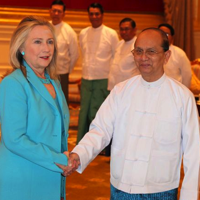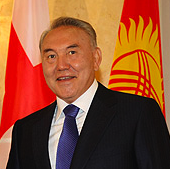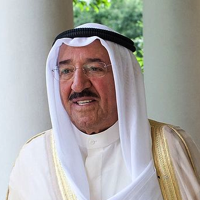In the first high-level meeting between the United States and Cuba since former U.S. President Jimmy Carter met with Cuban President Raul Castro in 2010, Sens. Patrick Leahy and Richard Shelby traveled to the island last week to discuss the case of imprisoned American Alan Gross. Though the case has strained relations between the two countries, and though the U.S. remains the only country in the Western Hemisphere without normal diplomatic relations with Cuba, there have been improvements in the relationship, particularly over the past three years. Geoff Thale, who oversees research and advocacy for the Washington Office on Latin […]
Human Rights Archive
Free Newsletter
Noting an improvement in Zimbabwe’s political situation since the signing of a power-sharing agreement in 2008, the European Union last week eased its targeted sanctions against the country’s leadership even as it encouraged further political reforms. With the goal of pushing further progress toward fair and peaceful elections, the EU removed visa bans and asset freezes on 51 individuals and 20 companies with links to the ruling party, ZANU-PF. But it kept an arms embargo in place, extended a freeze on aid for another six months and kept more than 100 party officials, as well as Zimbabwe’s President Robert Mugabe, […]

Over the past several months, the rapid changes in Myanmar have underlined the remarkable political skill of the government that came to power after the country’s 2010 elections. With its initial steps toward embracing a domestic reform process, the Myanmarese leadership has obtained approval from the other nine Association of South East Asian Nations members to chair the regional bloc in 2014. The domestic opening has also allowed Myanmar to forge economic and political relationships with other Asian countries such as Japan, India and South Korea. Perhaps most importantly, the dramatic thaw in relations with the U.S. has encouraged greater […]
Representatives from more than 50 countries, including U.S. Secretary of State Hillary Clinton and Somali President Sheikh Sharif Ahmed, have gathered in London for an international conference on Somalia, chaired by British Prime Minister David Cameron. In the words of Philip Barton, deputy head of mission at the British Embassy in Washington, the conference will focus on “the underlying causes of instability and its symptoms, such as famine, piracy and terrorism.” With piracy increasingly threatening international shipping, and the militant Islamist group al-Shabab developing closer ties to al-Qaida, problems that have plagued Somalia for two decades are posing a growing […]
Canadian Prime Minister Stephen Harper traveled to China earlier this month, where he met with senior Chinese leaders and signed deals promoting bilateral economic cooperation. In an email interview, Daniel Poon, a researcher at the North-South Institute, discussed trade and diplomatic relations between Canada and China. WPR: What is the nature and extent of energy relations between Canada and China, and how are they evolving? Daniel Poon: Due to years of prioritizing the U.S. market over all others, the extent of Canadian energy and, more generally, commercial relations with China have been relatively limited. In 2010, roughly one-third of Canada’s […]
Brazilian President Dilma Rousseff made her first official visit to Cuba last month. In an email interview, David Herrero, a research associate at the Council on Foreign Relations, discussed Brazil-Cuba relations. WPR: How did Brazil-Cuba relations evolve under former Brazilian President Luiz Inacio Lula da Silva, and what were Brazil’s priorities? David Herrero: Lula significantly expanded political engagement and commercial ties with Cuba. He visited the country four times as president and helped launch a $950 million modernization project — financed mostly by Brazil’s development bank, BNDES — at the Cuban port of Mariel. On the issue of human rights, […]

AKTAU, Kazakhstan — Last week, Kazakh President Nursultan Nazarbayev traveled to Germany for the signing of $4 billion worth of economic agreements, exchanging access to Kazakhstan’s stores of rare earths and raw minerals for German technological expertise. Appearing alongside German Chancellor Angela Merkel, Nazarbayev struck a confident figure in deflecting criticisms of the country’s democratic performance. After two decades of independence, Kazakhstan appears to have won its place on the world stage. Going solely by the numbers, Nazarbayev has reason to be confident. Once considered yet another impoverished Central Asian post-Soviet republic, Kazakhstan’s per capita GDP now stands at more […]
China announced last month that it will send a contingent to participate in the U.N. peacekeeping mission in South Sudan. In an email interview, Courtney Richardson, a research fellow at the International Security Program at Harvard University’s Belfer Center and a doctoral student at Tufts University’s Fletcher School, discussed China’s peacekeeping deployments. WPR: What is the recent history of China’s involvement in international peacekeeping missions? Courtney Richardson: From the time it assumed its seat at the United Nations Security Council in 1971 until the early 1980s, China was morally opposed to the international peacekeeping regime; it abstained on Security Council […]

It has been frequently noted over the past year that the ongoing turmoil in the Arab world has until now largely spared monarchies in the region. But observers of the region, and its rulers, also know that this state of affairs could suddenly change. As a result, Arab kings and emirs are under pressure to find a new governing formula: reforms that introduce elements of democracy without bringing an end to their rule. Over a number of decades, the emirate of Kuwait has managed to maintain a measure of stability under a system that combines a strong monarchy and an […]
